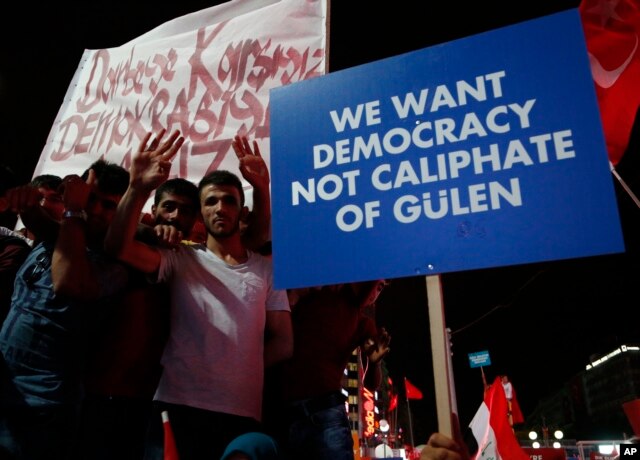What Would it Take for US to Extradite Muslim Cleric to Turkey?

If Turkish President Recep Tayyip Erdogan is hoping the U.S. will quickly spirit his archnemesis Fethullah Gulen out of rural Pennsylvania to stand trial in Turkey for plotting last week's failed coup against his government, he'll be sorely disappointed.
Erdogan has accused Gulen, a Turkish cleric and former political ally with whom he had a falling out in 2013, of engineering Friday's coup attempt from his self-imposed exile in Saylorsburg, Pennsylvania, and trying to have Erdogan assassinated as part of the plot.
Turkish Prime Minister Binali Yildirim said Tuesday that Turkey had given evidence of Gulen's involvement to the U.S. government after U.S. Secretary of State John Kerry said that Washington wanted hard evidence, not allegations.
But even if the U.S. agrees there is enough evidence to extradite Gulen, the extradition process could take months, if not years — roiling already strained relations between the two long-time NATO allies at a time they're waging a military campaign against the Islamic State in neighboring Syria and Iraq.
"I think what it will really do is to poison the overall atmosphere of the relationship even more than it already has been, and lead to anti-American sentiments about what they'd call in Turkey 'support for terrorism,'" said Aaron Stein, a senior resident fellow at the Atlantic Council who has closely monitored the situation in Turkey.
1979 treaty
Gulen's extradition request will be adjudicated under a 1979 treaty between the U.S. and Turkey, one of more than 100 the U.S. has signed with other countries.
Among other requirements, the treaty spells out the content of the formal request and the channel through which it is communicated. In the case of Gulen — someone who has been accused of a crime but not convicted — it calls for an arrest warrant; a statement of facts of the case; evidence that the offense, though allegedly committed in Turkey, is prosecutable in the U.S.; and the text of the law under which the accused would be tried.
It remains unclear what documents Turkey has turned over to Washington. But it doesn't appear to be a "provisional arrest or detention" warrant, which would require the U.S. to arrest and detain Gulen for up to 60 days to give Turkey time to prepare a formal extradition request and to keep him in custody until a decision is handed down in his extradition case.
Regardless, once the U.S. Department of State and the Department of Justice formally receive the request and determine that it meets all treaty standards, it moves to the U.S. District Court for the Middle District of Pennsylvania, where Gulen has lived as a permanent resident since 1999, according to two international extradition experts who spoke to VOA.
In the U.S. district court, the case will likely be assigned to a magistrate judge, a relatively low-level member of the U.S. judiciary, with the government of Turkey effectively represented by an Assistant U.S. Attorney and Gulen defended by his own lawyers, said Douglas McNabb, an international criminal lawyer who has handled over three dozen extradition cases. This leg of the process alone could potentially take months.What Would it Take for US to Extradite Muslim Cleric to Turkey?:
